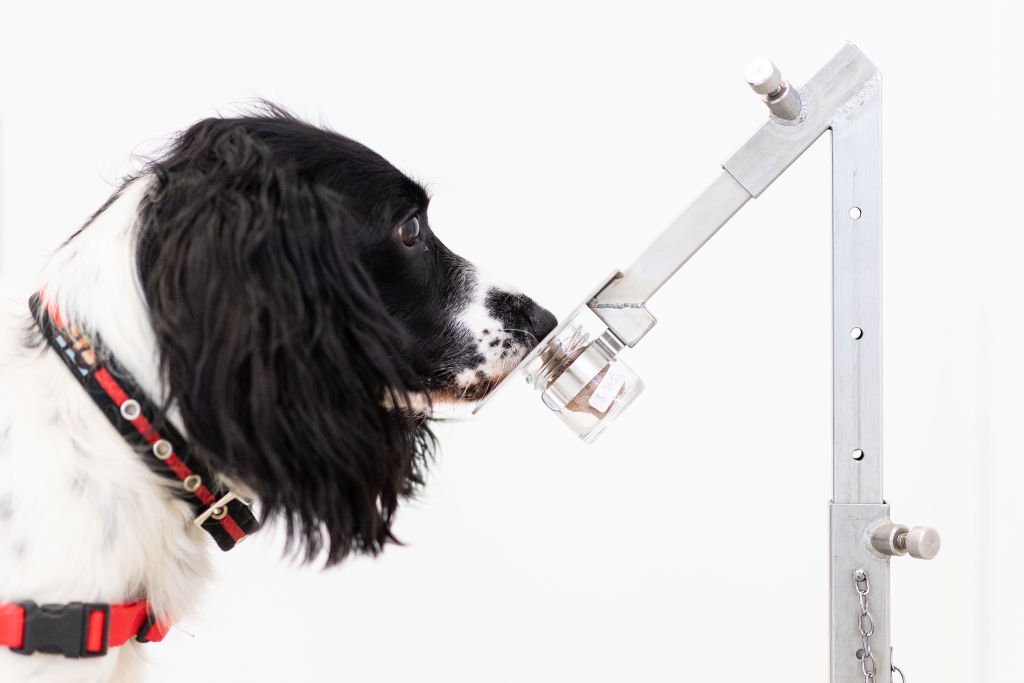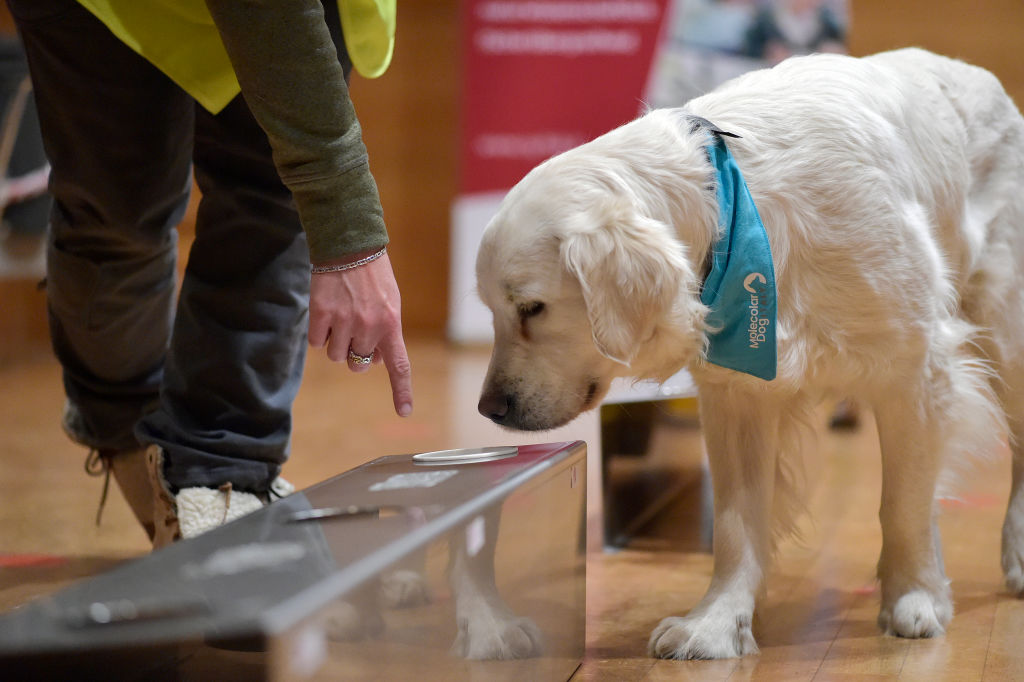WELLNESS
A nose for Parkinson’s – woman’s ability to smell disease could revolutionise disease diagnosis

In 2015, Scot Joy Milne shook researchers and scientists around the world with her ability to smell disease on people long before they are sick. This ‘superpower’ led to recent medical discoveries that could change the reality of Parkinson’s disease patients.
Joy Milne is a 72-year-old woman from Perth, Scotland, who has always had an oddly powerful sense of smell. She can be described as a “sturdy, good-humoured British aunt” who has lived a “quiet, uneventful life”, according to Alix Spiegel, a host of NPR’s podcast Invisibilia. She avoids certain streets in Perth because of the overpowering aroma of a candle shop, for example. And she is not found around people wearing perfume or cologne that’s too strong.
But Milne is far from ordinary – she has sparked scientific breakthroughs in the medical field that have touched the lives of many.
When her husband, Les, came home from work one day at 33 years old with a pungent, unfamiliar stench on him, she had no idea how much their lives would change from that point on.
And it was only her who could detect the smell and no one else believed her, no matter how much the “nasty, musky, yeasty odour” bothered her, as she described it. The stench continued to worsen as Les aged, and his personality warped along with it. He became much more “intolerable” and “moody”, she explained in Invisibilia.
Little did she know at the time that what she was smelling on her husband was an early sign of his developing Parkinson’s disease – more than an entire decade before he was eventually diagnosed at the age of 45.
A medical ‘superpower’
As the couple grew to suspect that her ability came with profound medical implications, she eventually consulted with experts. Tilo Kunath, researcher and professor at the University of Edinburgh, and Perdita Barran, analytical chemist and professor at the University of Manchester, confirmed the scientific truth of her “superpower”: it turns out that Milne has a condition known as hereditary hyperosmia, or a heightened sense of smell. But beyond that, not only can she detect disease on people via smell, but she can predict the impending disease long before symptoms begin and long before doctors have the ability to pick up on it.
Different diseases have distinct scents to her – she can differentiate between conditions such as Parkinson’s, Alzheimer’s, diabetes, tuberculosis and cancer. And she can detect at what stage in which the disease has progressed. “She could smell the disturbing future lurking just around the next corner of your life,” reported Spiegel.
Kunath developed a scientific test using fabric samples, requiring Milne to smell the scents of the T-shirts of people with Parkinson’s disease, and of those without the disease as the control group. She passed the test differentiating between the samples with complete, specific accuracy. She was also correct in determining the exact stage of the disease, or lack of disease, on each sample.
Barran, with the help of other researchers at the University of Manchester, also created a scientific test to confirm the presence of the disease based on its molecular signature, involving a large machine and long hours of Milne smelling cotton swabs and Q-tips covered in skin oil.
In 2019, the research team announced that they had identified molecules of Parkinson’s disease on the same skin swabs that Milne smelled it on, reported The Guardian.
As the research continues, Milne has established a rule of medical ethics for herself as “guardrails” in order to “bear the weight” of her “superpower”, reported Spiegel. Milne has accepted that she is not responsible for warning people about the disease she notices on them, not only to respect their privacy but also to avoid instilling in them a certain “terror” of the future that could forever taint all avenues of their life.
During the final six weeks of her husband’s life in 2015, Milne sat down with him every day for writing sessions and to discuss what had happened to them, reported Spiegel. She made a promise to her husband that she would dedicate herself to these research efforts that could one day help others. Indeed, Milne is continuing to work with scientists worldwide to help them research this early detection of Parkinson’s disease, and to see how her ability applies to other diseases as well.
Recent discoveries of Parkinson’s disease
Parkinson’s disease is the second-most common neurodegenerative disorder, but there is still not yet an established test for it. Diagnosis is based on a patient’s symptoms and medical history, according to the Parkinson’s Foundation.
However, The Guardian recently reported that after discovering Milne’s ability, the experts at the University of Manchester have since used cotton buds along the back of the neck to detect the molecules of the disease. These tests sourced from Milne’s ability are continuing to be successfully conducted in research labs, and scientists are assessing if they can soon be used in hospitals.
“If successful, the test could potentially be used in the NHS (National Health Service) so GPs (general practitioners) can refer patients for Parkinson’s tests,” reported The Guardian.
On 7 September, the findings of the experts at the University of Manchester were published in the Journal of the American Chemical Society. The study shows that there are “biomarkers” found in the lipids of high molecular weight, which are significantly more active among people suffering from Parkinson’s disease. “The identification of robust biomarkers to complement clinical diagnosis will accelerate treatment options,” the study mentioned.
According to a statement by the university: “The Manchester team now sees this as a major step forward towards a clinical method for confirmatory diagnosis of Parkinson’s.” Professor Monty Silverdale, the clinical lead on the study, also said in the statement: “This test has the potential to massively improve the diagnosis and management of people with Parkinson’s disease.”
The work at the university is continuing, and the trial has now recruited more than 2,000 Parkinson’s patients to find further solutions. “We are hoping within two years to be able to start to test people in the Manchester area,” Barran told the BBC in September.
The power of the nose
Although remarkable, Milne isn’t the first known case of having the ability to smell disease.
It is common knowledge that animals such as dogs have an investigative smelling ability. According to a 2021 BMC Cancer study, dogs are able to detect lung cancer, for example, through breath and urine samples.

“Freya” correctly detects a sample of malaria from a row of sample pots at the “Medical Detection Dogs” charity headquarters on March 27, 2020 in Milton Keynes, England. Image: Leon Neal / Getty Images

Dog sniffing used masks to detect Covid-19 infection on January 18, 2021 in Bolzano, Italy. Image: Alessio Coser / Getty Images
However, research published in Science perhaps suggests that Milne’s situation isn’t as “superpower-like” as it is made out to be, and the general human ability to smell can actually be quite powerful as well. The high number of neurons in the human brain’s olfactory bulb shows that people fall in the middle of the range among mammals in terms of the power of smelling, and we may have more sensitive noses than rats and mice, the research discusses.
In regards to disease detection, a 2017 study published in the Proceedings of the National Academy of Sciences discusses a similar situation in which the participants could identify between sick people and healthy people based on body odour and even photographs.
“It simply makes good evolutionary sense that we use our noses to notice illness,” Valerie Curtis told National Geographic. Curtis is a public health researcher at the London School of Hygiene and Tropical Medicine and author of the book Don’t Look, Don’t Touch, Don’t Eat on the science of disgust.
“Disgust is our way of avoiding things that could harm us,” reported National Geographic. “Perhaps the biggest barrier to our abilities is that we don’t pay enough attention to smells, and we lack a sophisticated language to describe them.”
In the meantime, the realisation of Milne’s “superpower” continues to revolutionise the research of Parkinson’s disease and the diagnosis of sickness in general. Further medical discoveries are yet to unfold regarding the use of the human nose as a warning signal. ML/DM
Visit Daily Maverick’s home page for more news, analysis and investigations


















Comments - Please login in order to comment.